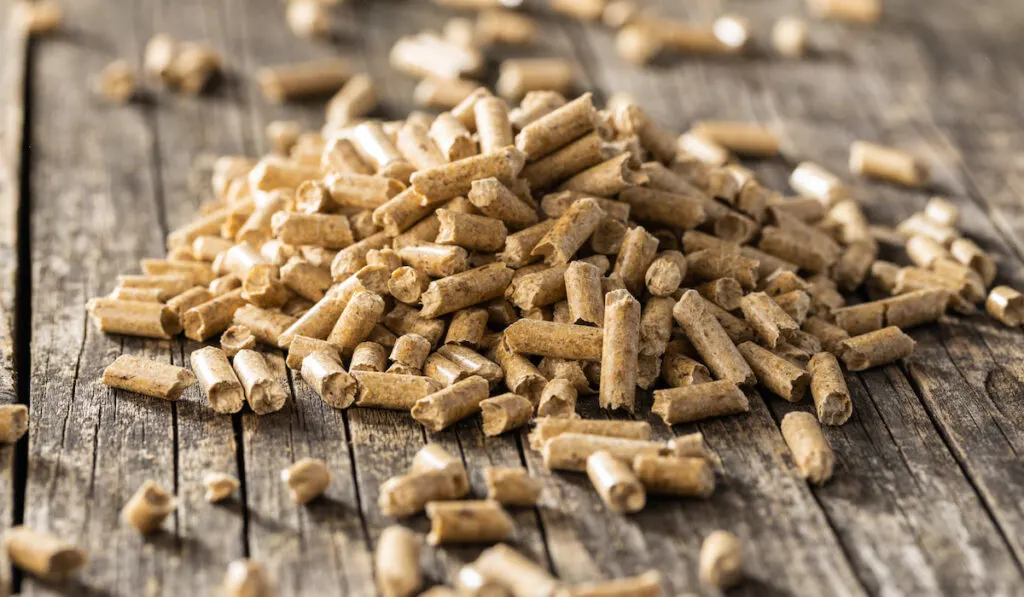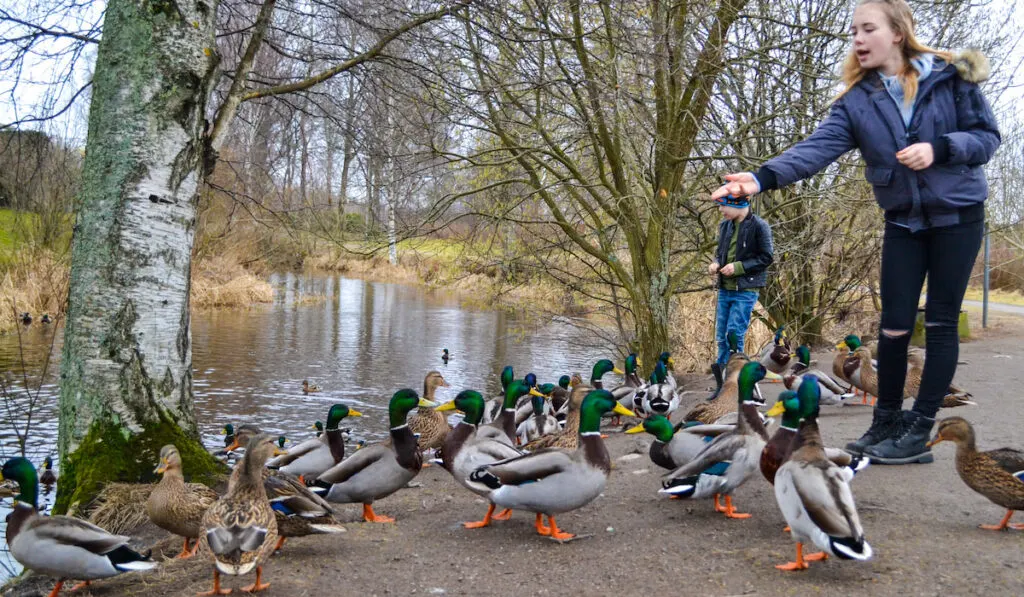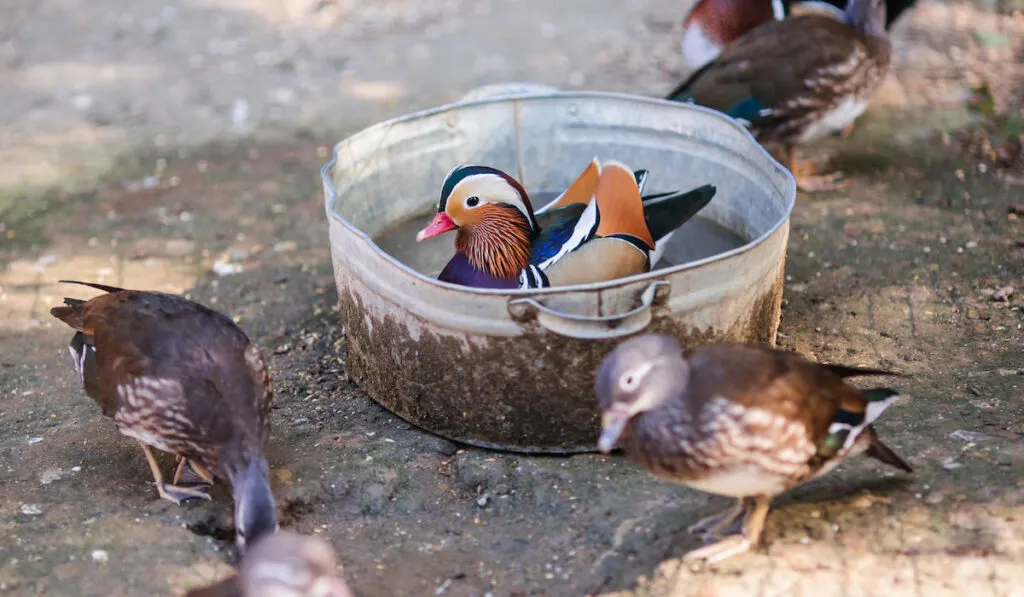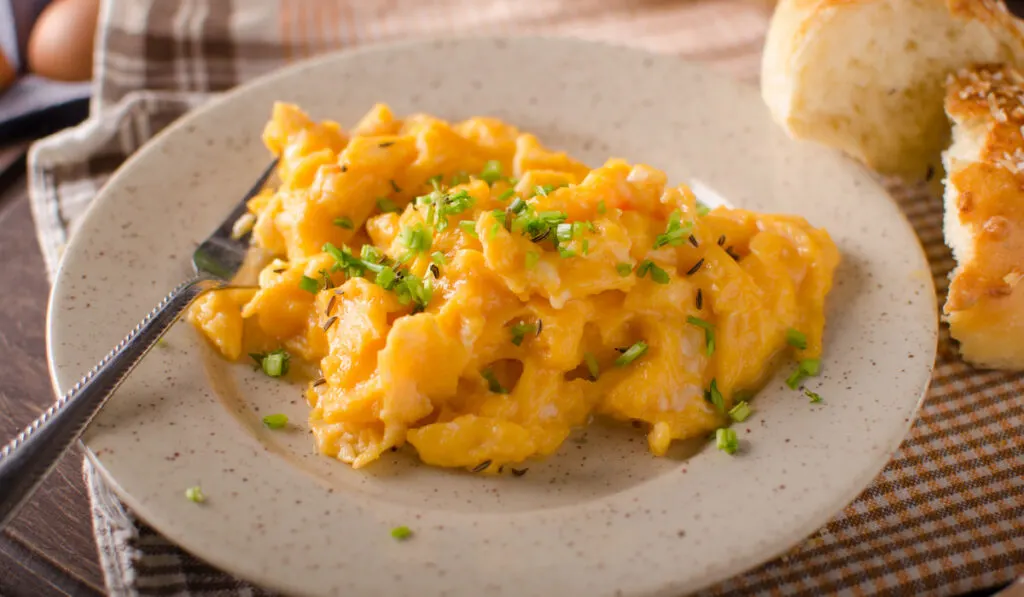Suet pellets are a great alternative feed source for birds. They are typically easy to eat or digest and can be carried around to eat later if needed. Suet pellets are a high calorie, high energy food and can be great for wild birds in rough times (like winter) when other food sources are more scarce.
Are suet pellets okay for ducks?
Ducks should not eat suet pellets. Suet pellets get their high-calorie content from large amounts of animal fat. Ducks cannot digest animal fat efficiently, and suet pellets will only create problems. Suet pellets can also increase fat accumulation in ducks which can lead to health problems.

Understanding that a food that is great for one type of bird but not another species can be confusing at first. Let’s learn more about suet pellets as well as some safer, healthier alternatives for duck feed.
Table of Contents
What Are Suet Pellets?
The main ingredient in suet pellets is animal fat. Suet also contains flour, ground cornmeal, and chunky peanut butter. These ingredients are combined and compressed into a pellet shape making it easier to feed.
Other non-essential ingredients may be used during preparation. Suet pellets can also contain dried fruits, bird seeds, worms, nuts, and insects.
Suet pellets make a great food source for wild and migratory birds, especially when weather or geography make natural foraging and feeding difficult. Bird lovers can leave suet pellets out in feeders or on the ground.
Since suet pellets can be harmful to ducks, be sure to keep them away from your ducks if you intend to feed wild birds.

Can You Feed Suet Pellets to Ducks?
Suet pellets should not be fed to ducks no matter the intended amount. Suet pellets contain animal fat and other high calorie ingredients that are unnatural to a duck’s healthy diet.
Feeding a duck suet pellets, even as a small snack, can alter their nutritional balance or cause them harm.
Ducks cannot easily digest the fat in suet pellets. The pellets will remain in their bellies for a long time before complete digestion. This can cause bloating, stomach ache, and malnutrition.
There are limited studies on whether suet pellets can be used as treats, even in limited amounts. Suet pellets are known to increase fat accumulation, so even in small quantities, the food can have a negative effect on your ducks.
You should avoid giving ducks suet pellets as part of a meal or as a treat. While your ducks may be happy to eat them, suet pellets are not safe for them to consume.
While they aren’t outright poisonous, if you have given suet pellets to your ducks or you believe they have eaten suet pellets, you’ll want to monitor them for changes in behavior and contact a veterinarian for advice.
Basic Duck Nutrition Requirements
For your ducks to grow to be healthy and strong, there are certain nutrients you must provide in their meals. When looking for safe, healthy alternatives to suet pellets to supplement meals or serve as duck treats, consider these basic nutrition requirements.
| Nutrients | Starter (0-2 weeks) | Grower (2-7 weeks) | Breeder |
| Protein (%) | 20-22 | 16-19 | 15-16 |
| Fat (%) | 5 | 5 | 5 |
| Calcium (%) | 0.65-1 | 0.6-1 | 2.75-3 |
| Vitamin A (mg/kg) | 3100 | 1750 | 4200 |
| Vitamin B2 (mg/kg) | 10 | 6-10 | 10 |
| Vitamin B3 (mg/kg) | 55 | 55 | 55 |
| Vitamin B5 (mg/kg) | 11 | 10 | 11 |
| Vitamin B6 (mg/kg) | 2.5 | 2.5 | 3 |
| Vitamin D3 (IU) | 300 | 400 | 400 |
| Vitamin E (IU) | 10 | 10 | 10 |
| Vitamin K (mg/kg) | 2.5 | 2 | 2.5 |
| Zinc (mg) | 60 | – | – |
| Selenium (mg) | 0.2 | – | – |
| Magnesium (mg) | 500 | 500 | 500 |
| Phosphorus (%) | 0.4 | 0.3 | 0.4 |
| Manganese (mg) | 50 | – | – |
| Sodium (%) | 0.15 | 0.15 | 0.15 |
| Chloride (%) | 0.12 | 0.12 | 0.12 |
Tips for Feeding Ducks
You know not to feed your ducks suet pellets, but now you aren’t sure how to choose the right treats or improve their diet. Along with understanding general nutrition requirements, here are some factors to consider when feeding ducks.

Ducks Cannot Chew
Any food you give your ducks must already be in tiny bite-sized pieces since they cannot chew. Feeding ducks large pieces leaves them at risk of choking.
Stop Feeding Them if They Do Not Want to Be Fed
If your ducks are not eating what you are feeding them, stop putting out extra or different food. Ducks may seem like they do not want to be fed, but they will eat when they are hungry and ready to eat.
Accumulating leftovers can attract pests. Leftover or old feed can also rot and leave your ducks at risk for mold infections such as aspergillosis.
Do Not Overfeed Them
Have ducks that won’t stop eating? Ducks might not always know when its best to stop especially if they are enjoying a new treat.
Ensure you serve your ducks the right amount of food. If you put too much food out or feed them to often, your ducks may end up eating more than they should. Excessive eating can cause health problems such as bloating and abdominal discomfort.
Overfeeding also increases the chances of leftovers or food sitting out too long. Old feed that is no longer fresh can lead to mold and risk of infection.
Keep Their Feeding Area (and Home) Free of Trash
Trash can be detrimental to a duck’s health, so keeping their feeding area free of garbage is important. Trash can harbor mold and cause infection in ducks. A clean space will encourage proper feeding and general well being.

7 Snack and Treat Ideas for Ducks
Suet pellets are not a good snack for ducks, but you still want to give them a healthy treat once and a while. So what can you give them in moderation? Here are 7 snack ideas you can give your ducks:
Warm Oatmeal
Warm oatmeal is great for ducks on a cold morning, especially during winter.
Frozen Peas
Place frozen peas in a bowl or a bag, and let them defrost for a few hours. You can give them to your ducks when the peas become soft.
Scrambled Eggs
Ducks love scrambled eggs. This treat is a great source of protein and can be prepared quickly.
Fruit Mix
Chop watermelons, bananas, and grapes into bite-size pieces and combine in a bowl. Chill in a refrigerator until the fruit is cool, then treat your ducks to a fruit mix.
You can make a fruit mix with almost any fruit combination. Be sure to avoid citrus fruits and avocados. If you use stone fruits, remove all of the seeds before giving them to your ducks.
Boiled Rice
Boiled rice is a great soft snack for your ducks. You can garnish the boiled rice with a few seeds that are safe for ducks such as flax seeds, chia seeds, pumpkin seeds, and sesame seeds.
Sweetcorn
Ducks can also enjoy sweetcorn – fresh, frozen, or canned.
Mashed Potatoes
Mashed potatoes for your ducks? Yes, but keep them plain. Boil potatoes and then mash them thoroughly. Don’t include butter, salt, or other seasonings.
No matter the snack or treat you are giving your ducks, ensure you give them in moderate amounts. Treats cannot replace a duck’s main feed and should not make up more than 10% of a duck’s diet.
Final Thoughts
Suet pellets can cause digestive issues in ducks are not a safe food source. Even without these premade treats, giving your ducks a safe and healthy treat can be easy once you consider the nutrients they need.
Resources
- https://www.lovegardenbirds.co.uk/garden-bird-suet-food/suet-pellets
- https://blog.ivelvalleybirdfood.co.uk/bird-feeding/what-food-can-ducks-eat/
- https://www.backyardchickens.com/threads/can-i-fed-my-ducks-suet-pellets.1107039/
- http://www.poultryhub.org/nutrition/nutrient-requirements/nutrient-requirements-of-ducks/
- https://www.backyardchickens.com/threads/suet-cakes-for-ducks.998843/
- https://www.nap.edu/read/2114/chapter/7
- https://www.thespruce.com/what-to-feed-ducks-386584
- https://www.thespruce.com/simple-bird-suet-recipe-386579
- https://www.hgtv.com/outdoors/gardens/animals-and-wildlife/snacks-ducks-love
- https://thecapecoop.com/treats-ducks-will-love/
